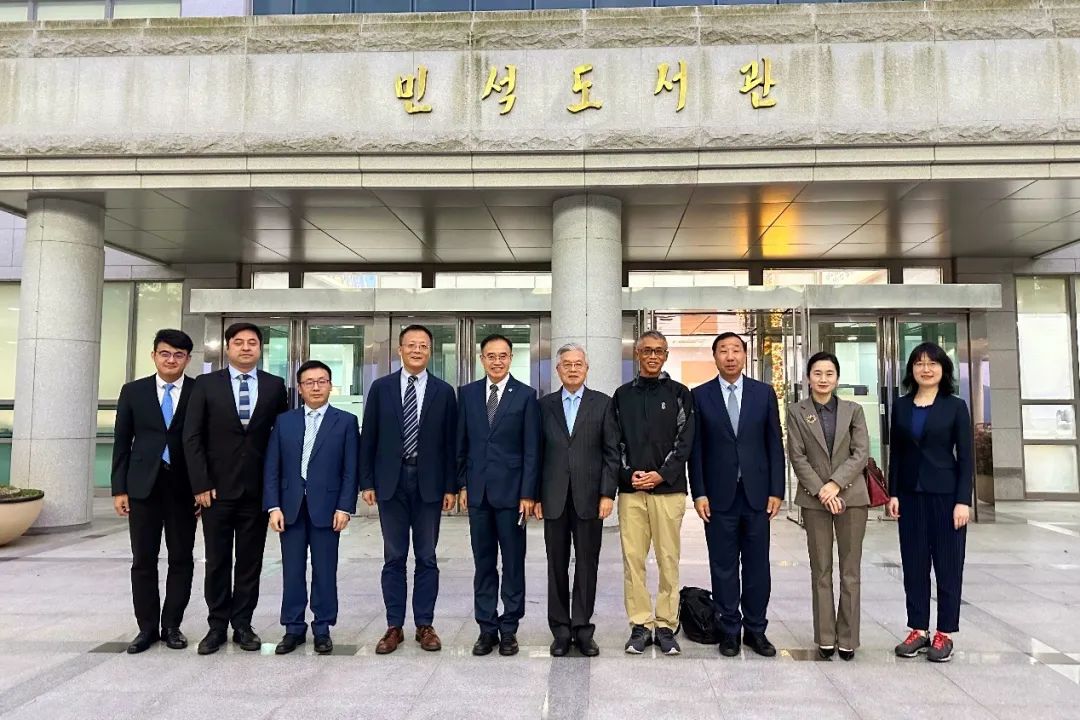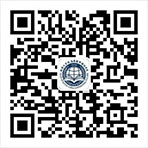
Strengthening Ties Amid Changing Dynamics: The 9th Shanghai-Busan Cooperation Forum
The 9th Shanghai-Busan Cooperation Forum and the International Symposium on “Changes in the East Asian Situation and Busan-Shanghai Cooperation” were held on November 15, 2024, in Busan, South Korea. Jointly hosted by Tongji University, Dongseo University, and their affiliated research centers, the event brought together over 20 prominent scholars, diplomats, and policymakers from both countries to examine pressing issues in Northeast Asia and explore avenues for strengthening regional and bilateral cooperation.
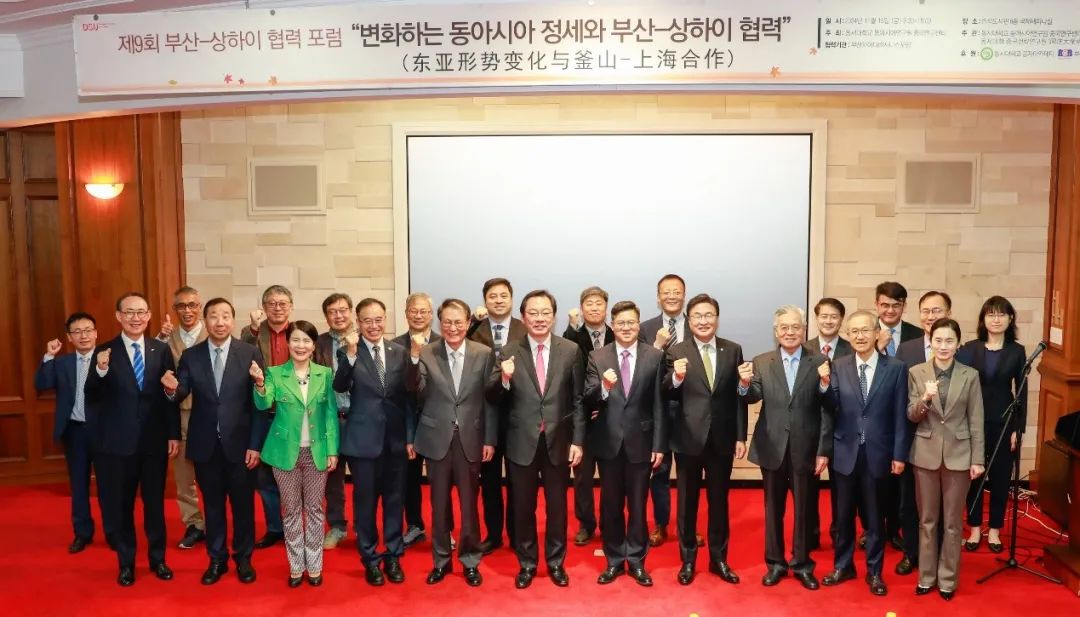
Thematic Focus and Keynote Insights
The forum highlighted the complexities of contemporary international relations in Northeast Asia, driven by shifting power dynamics and evolving priorities. Ambassador Shin Jung-seung, Dean of the Institute of East Asian Studies at Dongseo University, opened the discussions by emphasizing the value of stable China-South Korea relations amidst challenges. He underscored the forum's dual role in fostering meaningful dialogue between the sister cities of Busan and Shanghai and contributing to the long-term health of bilateral ties.
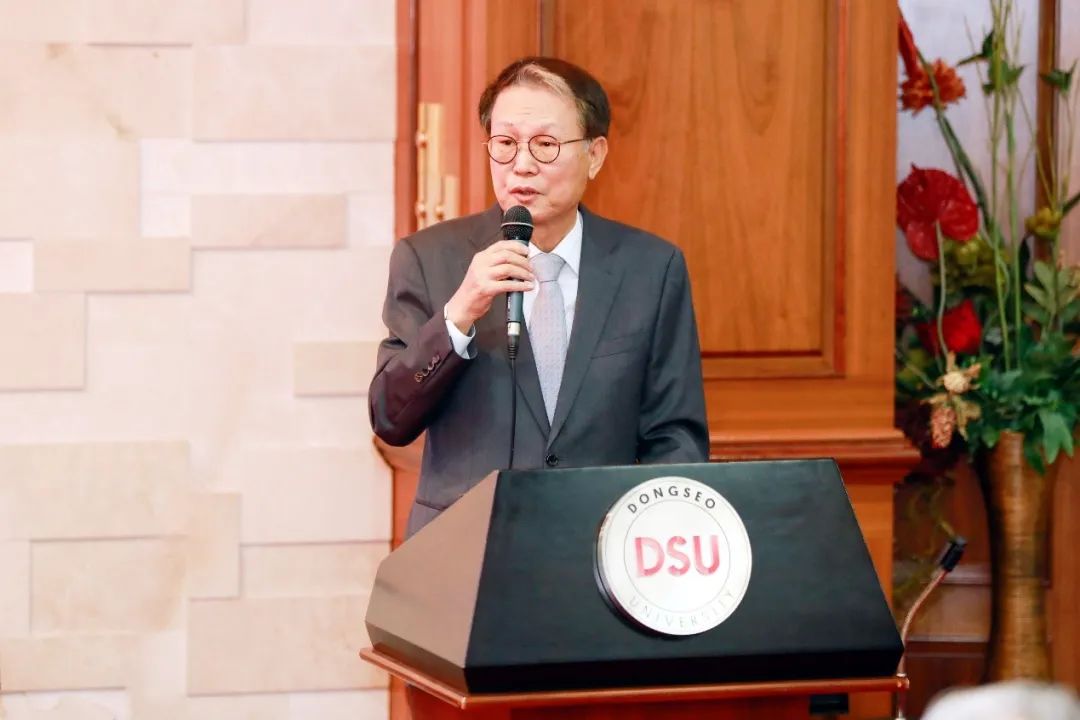
Dean Men Honghua of Tongji University reflected on the broader geopolitical landscape, noting that the world is at a pivotal moment marked by the transition to an era of intensified global competition. He urged participants to focus on economic collaboration and strategic trust to navigate emerging challenges.
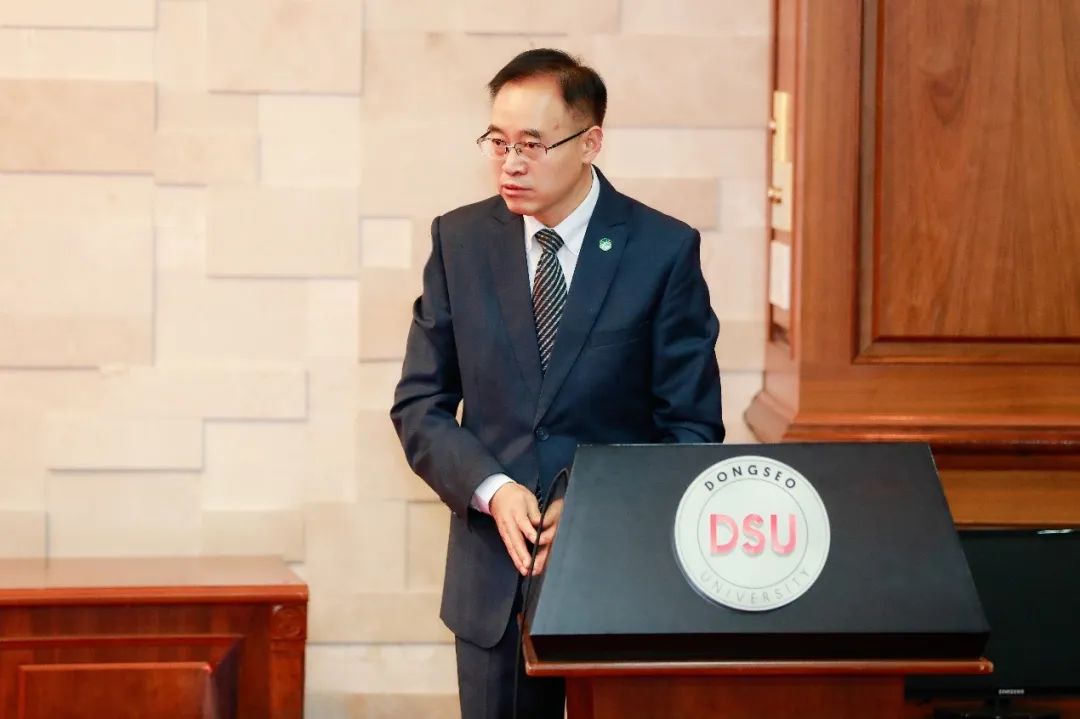
President Jang Je-guk welcomed guests from both China and South Korea to Dongseo University to participate in the 9th Shanghai-Busan Cooperation Forum in his speech. He pointed out that since the establishment of diplomatic relations between China and South Korea, the two countries have carried out fruitful cooperation in various fields. And the two sister cities of Busan and Shanghai have also carried out wide-ranging and multi-level exchanges and cooperation with fruitful results.
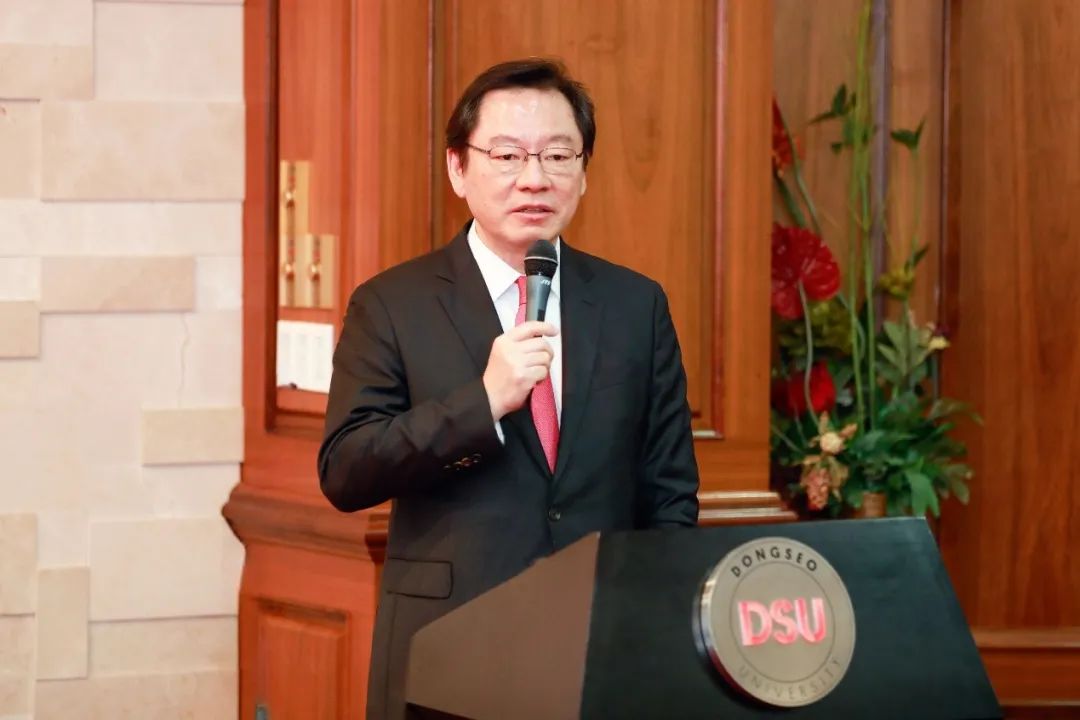
Consul General Chen Ribiao lauded the strides made since the establishment of China-South Korea diplomatic relations 32 years ago. He pointed to the forum’s role in promoting practical exchanges and enhancing mutual trust.
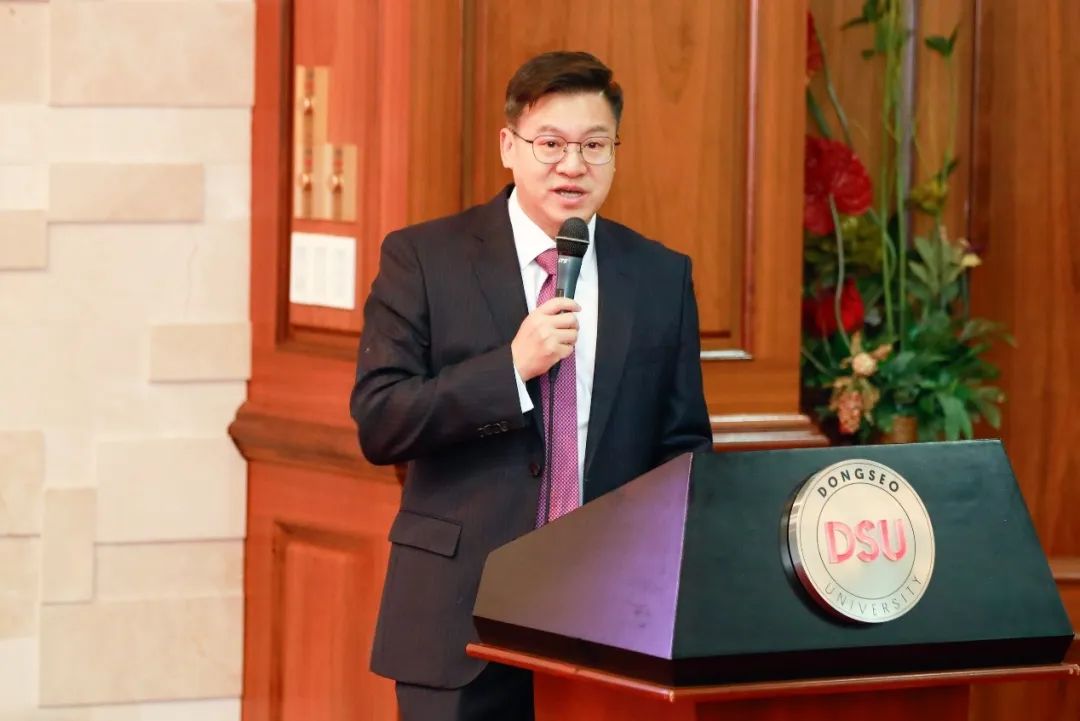
Kim Dae-sik, a member of the 22nd National Assembly of South Korea and former President of Gyeongnam Information University, said in his speech that since the establishment of diplomatic relations between China and South Korea, the two countries have had close exchanges and a very wide range of cooperation fields, achieving fruitful results.
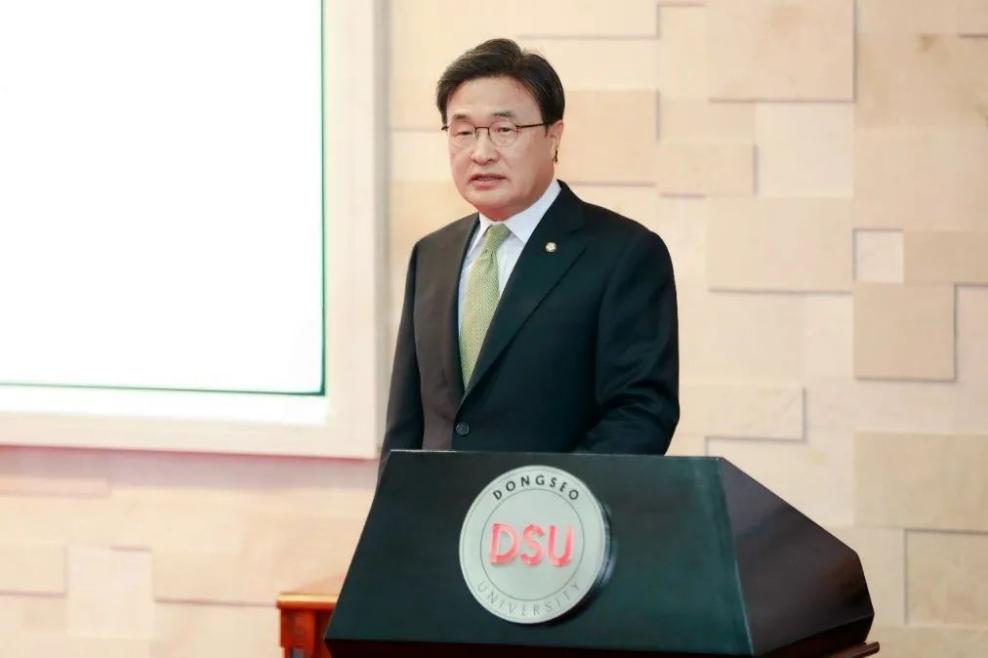
Former South Korean diplomat Lim Sung-nam addressed the ripple effects of major global shifts, particularly in US-China relations, on the region. He stressed the need for innovative solutions to manage these dynamics, drawing attention to the importance of collaborative diplomacy.
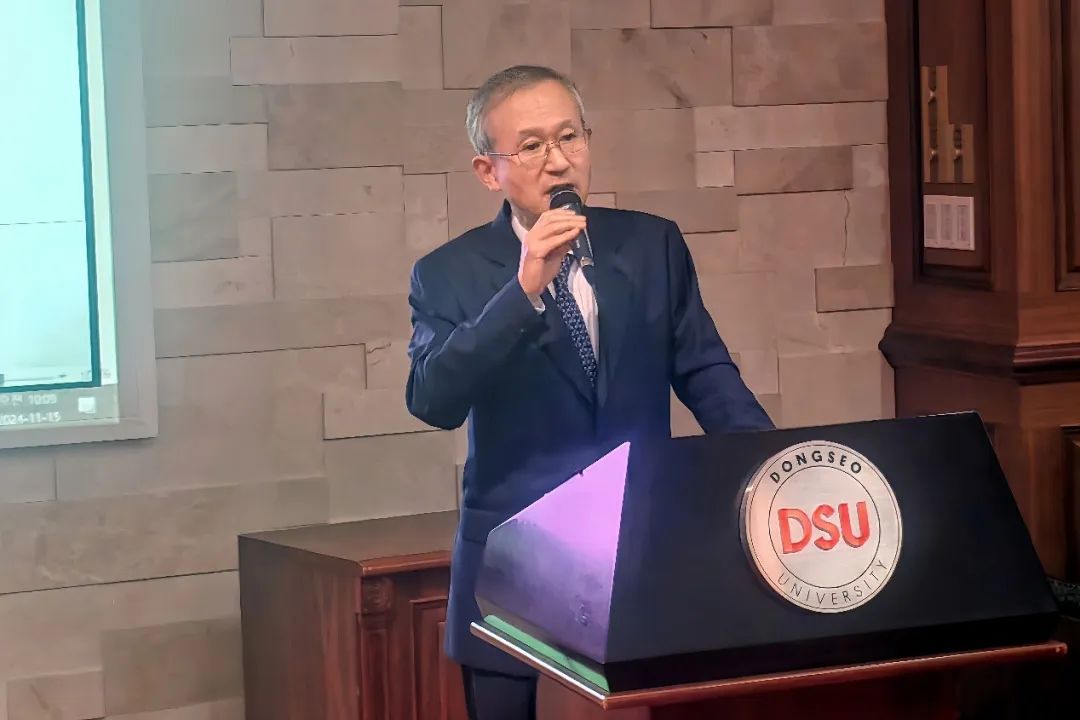
Expanding Economic and Cultural Cooperation
Economic interdependence formed a recurring theme throughout the discussions. Scholars and policymakers identified opportunities for deepening collaboration in sectors such as digital technology, green innovation, and cultural industries. While acknowledging recent challenges in bilateral trade, participants called for accelerating negotiations on the China-South Korea Free Trade Agreement and fostering new avenues for economic partnership.
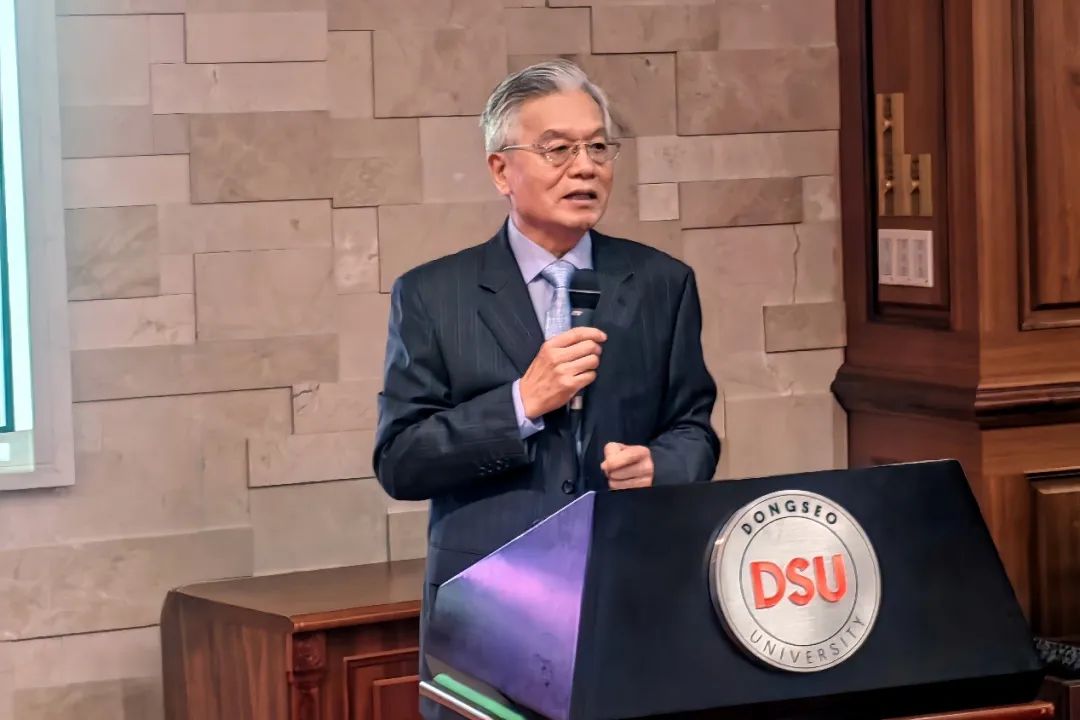
Busan and Shanghai, both key port cities, were spotlighted for their potential to lead localized cooperation. Speakers proposed initiatives to enhance cross-border e-commerce platforms and develop shared projects in renewable energy, biotechnology, and smart city technologies. The forum underscored the necessity of aligning these initiatives with broader regional frameworks like the Regional Comprehensive Economic Partnership (RCEP).
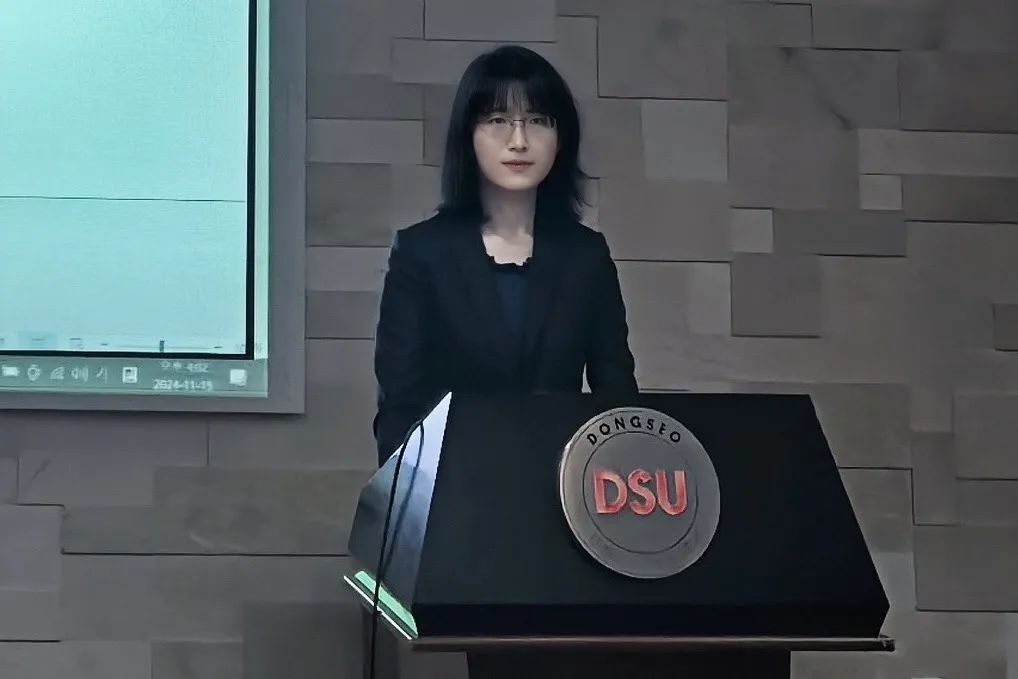
Cultural exchanges emerged as another pillar of cooperation. Publishing, tourism, and education were highlighted as effective tools for building mutual understanding and trust. Representatives from Tongji University Press and the San-Eagle Publishing House shared success stories of collaboration, including co-organized book fairs and joint publications. These efforts, participants noted, could pave the way for broader cultural dialogue between the two countries.
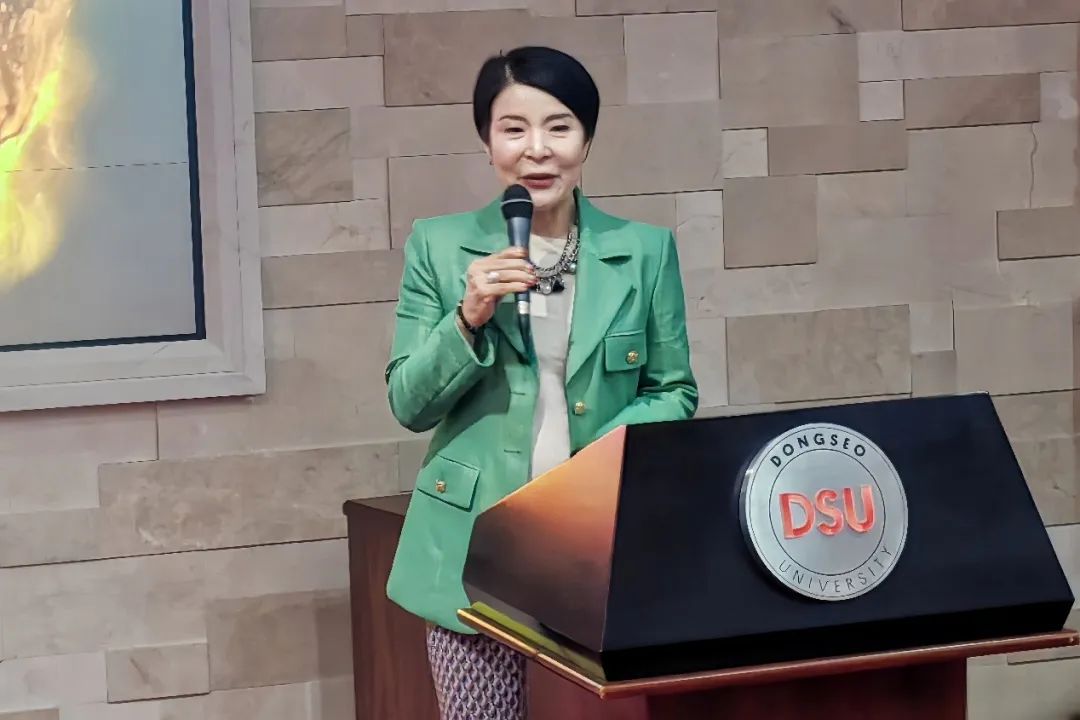
Panel Discussions: Diverse Perspectives on Regional Dynamics
Panel discussions delved into critical issues shaping the future of Northeast Asia. A session on international relations examined the strategic competition between China and the US and its impact on regional security. Experts highlighted the urgency of maintaining dialogue and leveraging multilateral platforms to address shared concerns such as climate change, energy security, and regional stability.
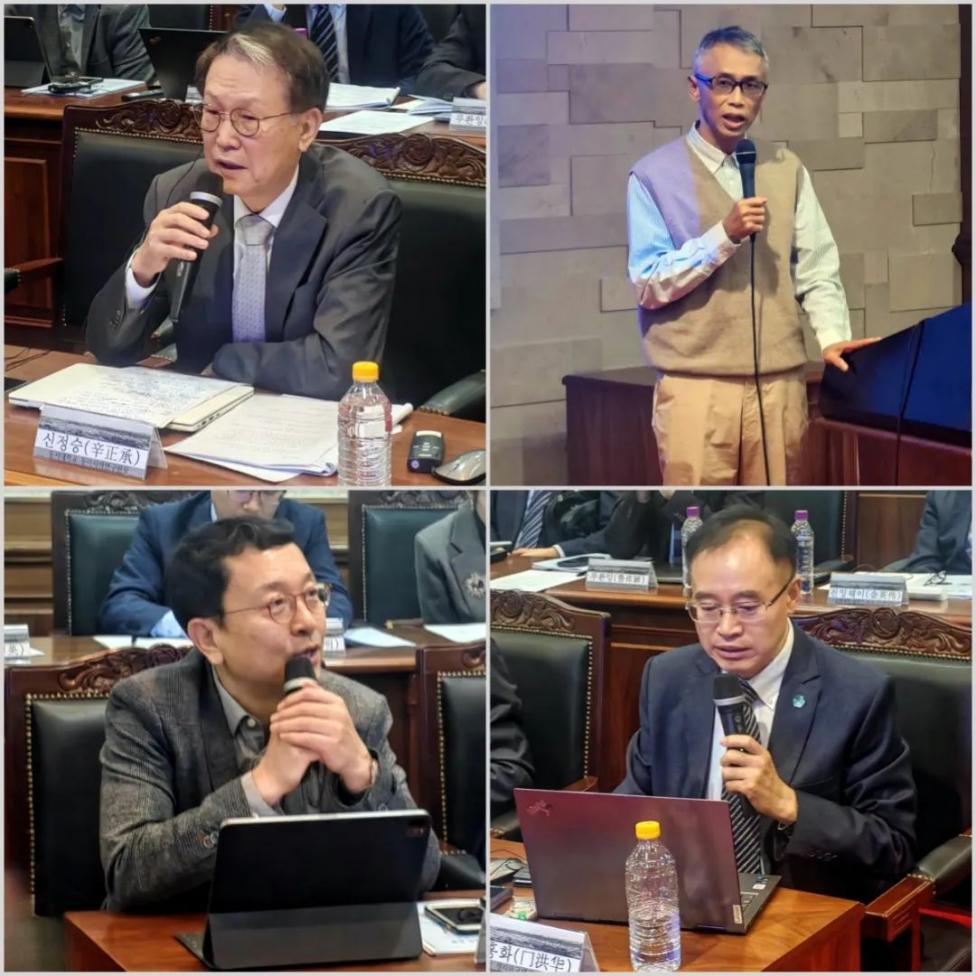
City diplomacy featured prominently in discussions, with Busan and Shanghai serving as models for subnational cooperation. Speakers highlighted their complementary strengths in technology, culture, and trade, proposing initiatives to bolster exchanges. Proposals included joint industrial projects and educational programs aimed at fostering talent for future collaboration.
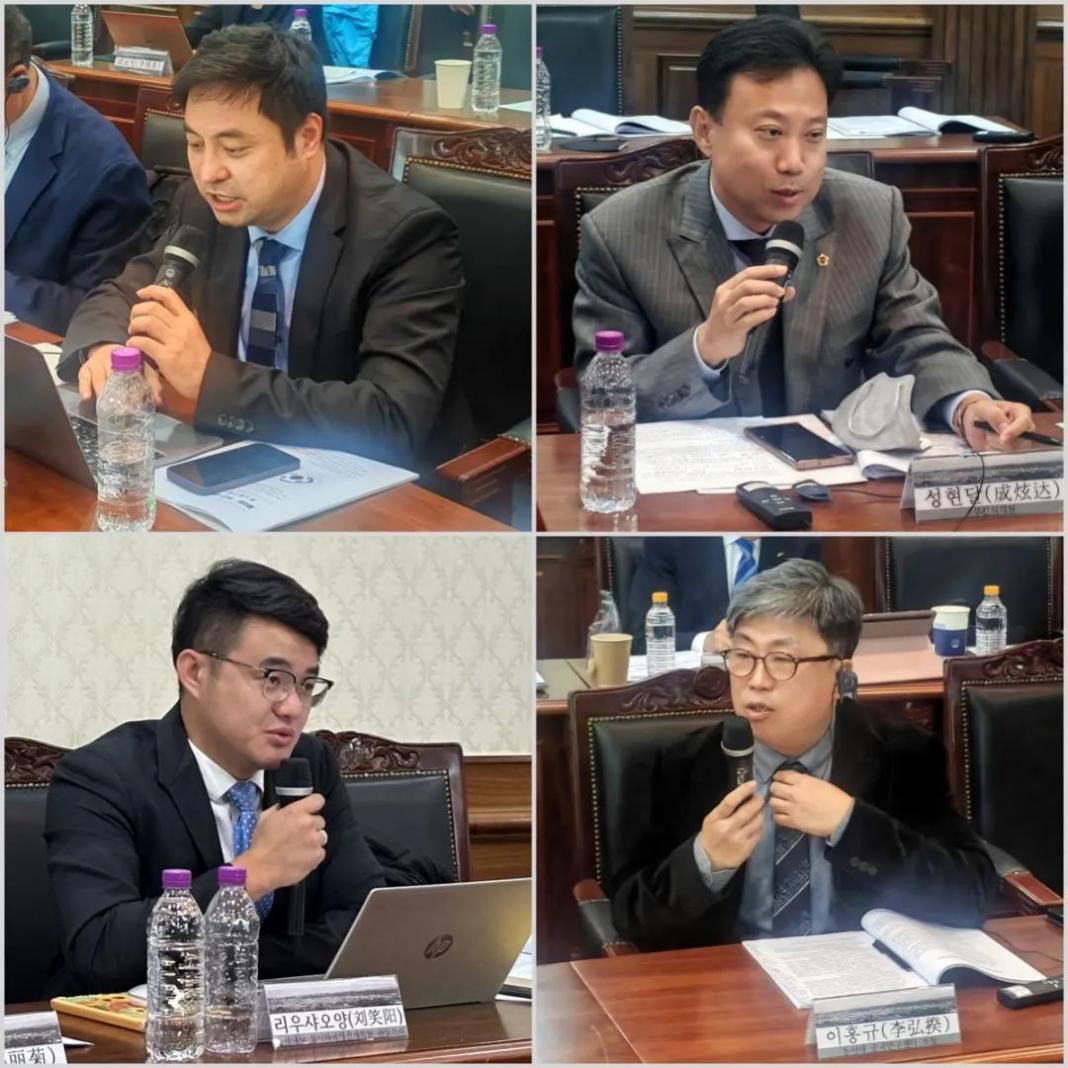
The role of cultural diplomacy in mitigating tensions was also a key focus. Scholars pointed out that despite geopolitical challenges, cultural exchanges remain a vital channel for fostering goodwill. They suggested leveraging the sister-city relationship between Busan and Shanghai to organize more people-to-people exchanges, academic partnerships, and creative industry collaborations.
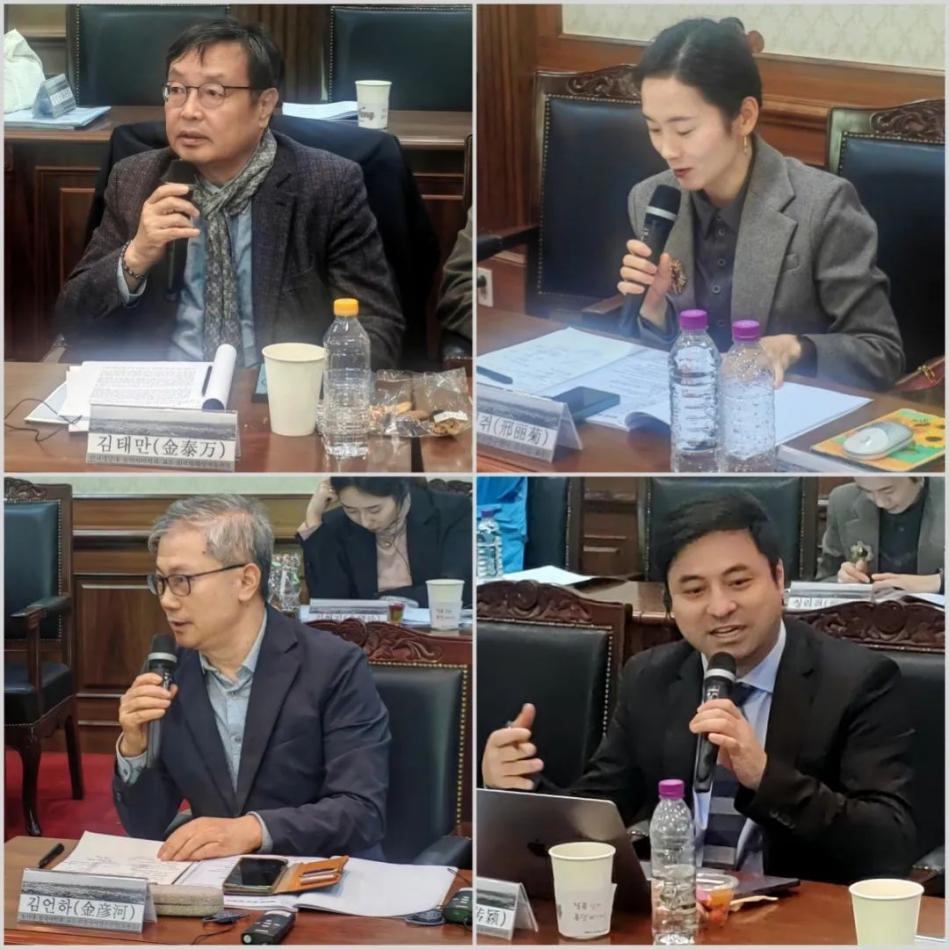
Vision for the Future: The 10th Shanghai-Busan Cooperation Forum
The forum concluded with optimism and forward-looking plans. Ambassador Shin Jung-seung described the event as a valuable platform for dialogue and consensus-building, contributing to the broader goal of fostering peace and prosperity in Northeast Asia. He expressed hope that the 10th forum, set to take place in Shanghai, would attract an even broader range of participants, including youth, business leaders, and civil society representatives.
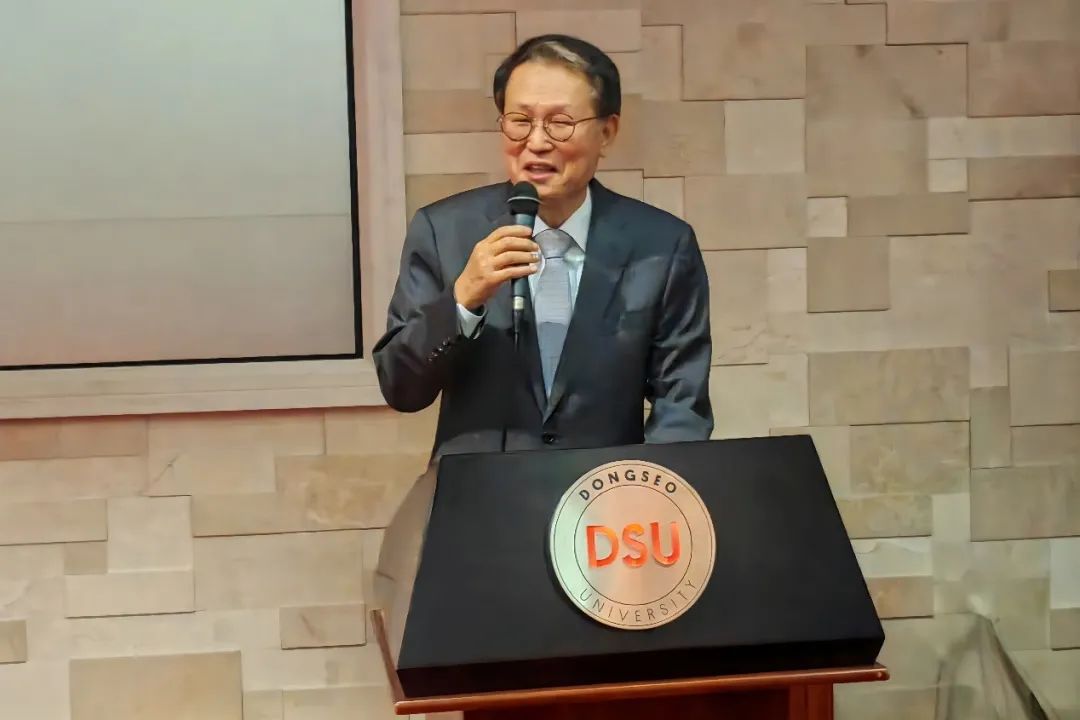
Dean Men Honghua echoed these sentiments, emphasizing the need to build on the success of the current forum. He proposed organizing special exchanges between students and business communities in both cities to deepen mutual understanding. Plans for publishing the forum proceedings were also discussed, with the goal of documenting key insights and providing a foundation for future research and collaboration.
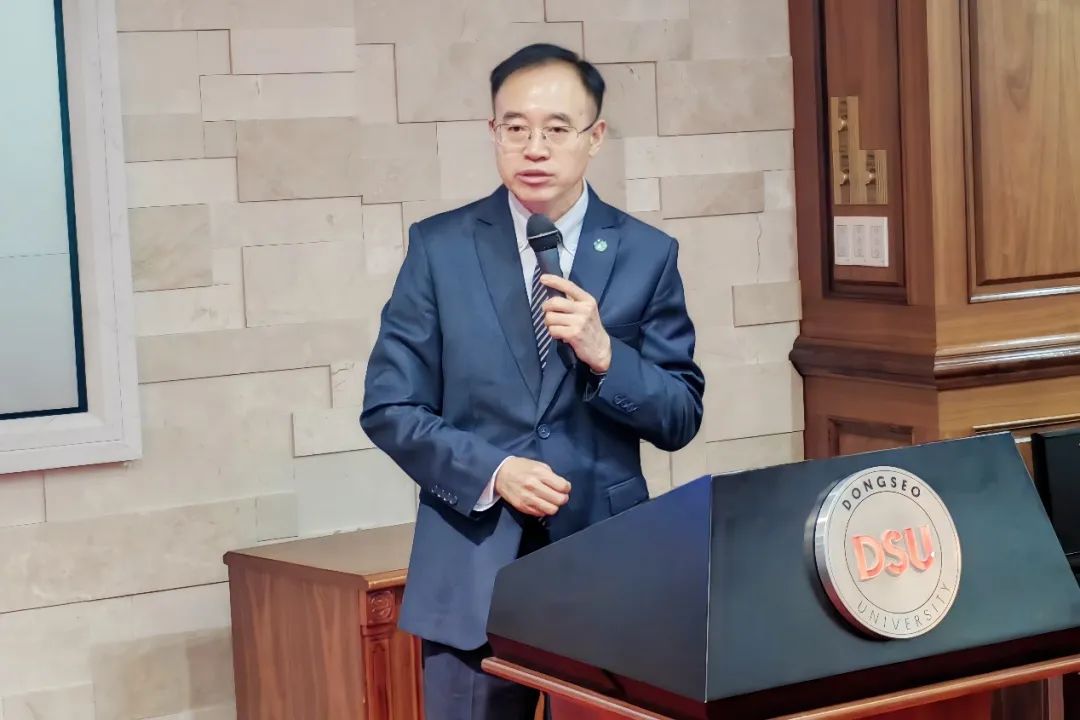
A Commitment to Continued Collaboration
As the forum drew to a close, participants reaffirmed their commitment to strengthening ties between China and South Korea. They highlighted the importance of maintaining regular dialogue, fostering mutual respect, and addressing shared challenges collaboratively. The event demonstrated the enduring relevance of platforms like the Shanghai-Busan Cooperation Forum in navigating the complexities of an ever-changing world.
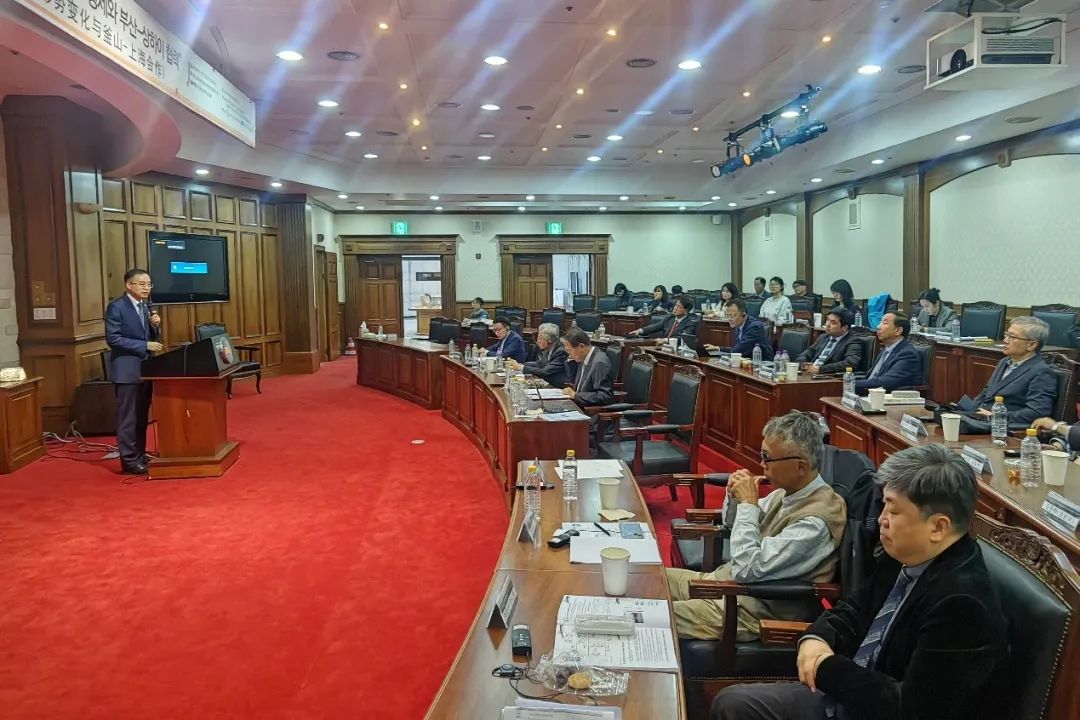
The 9th Shanghai-Busan Cooperation Forum underscored the value of academic and policy-driven exchanges in bridging divides and forging new pathways for cooperation. As preparations begin for the milestone 10th forum, the spirit of collaboration fostered in Busan will undoubtedly serve as a strong foundation for future endeavors.
